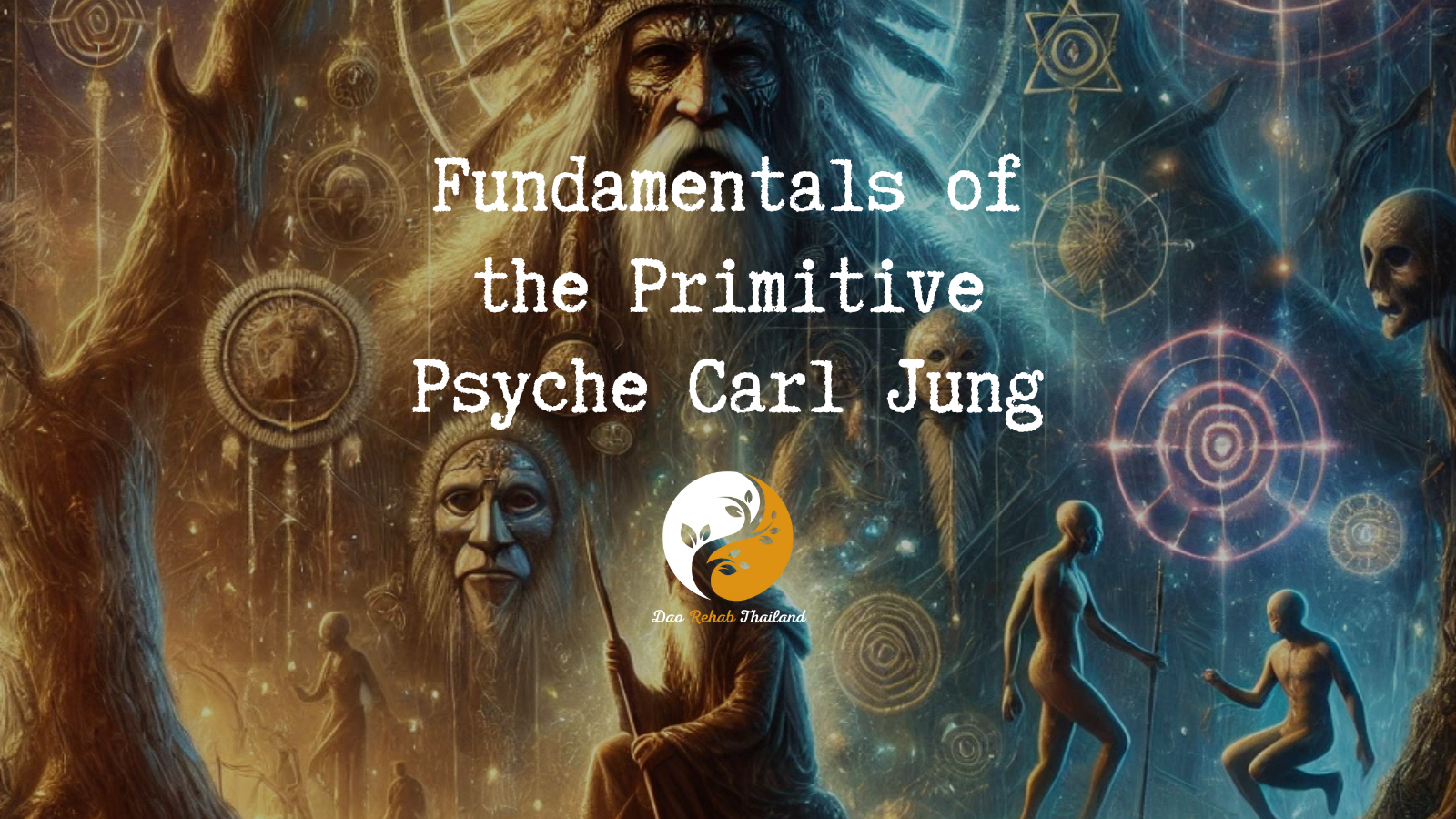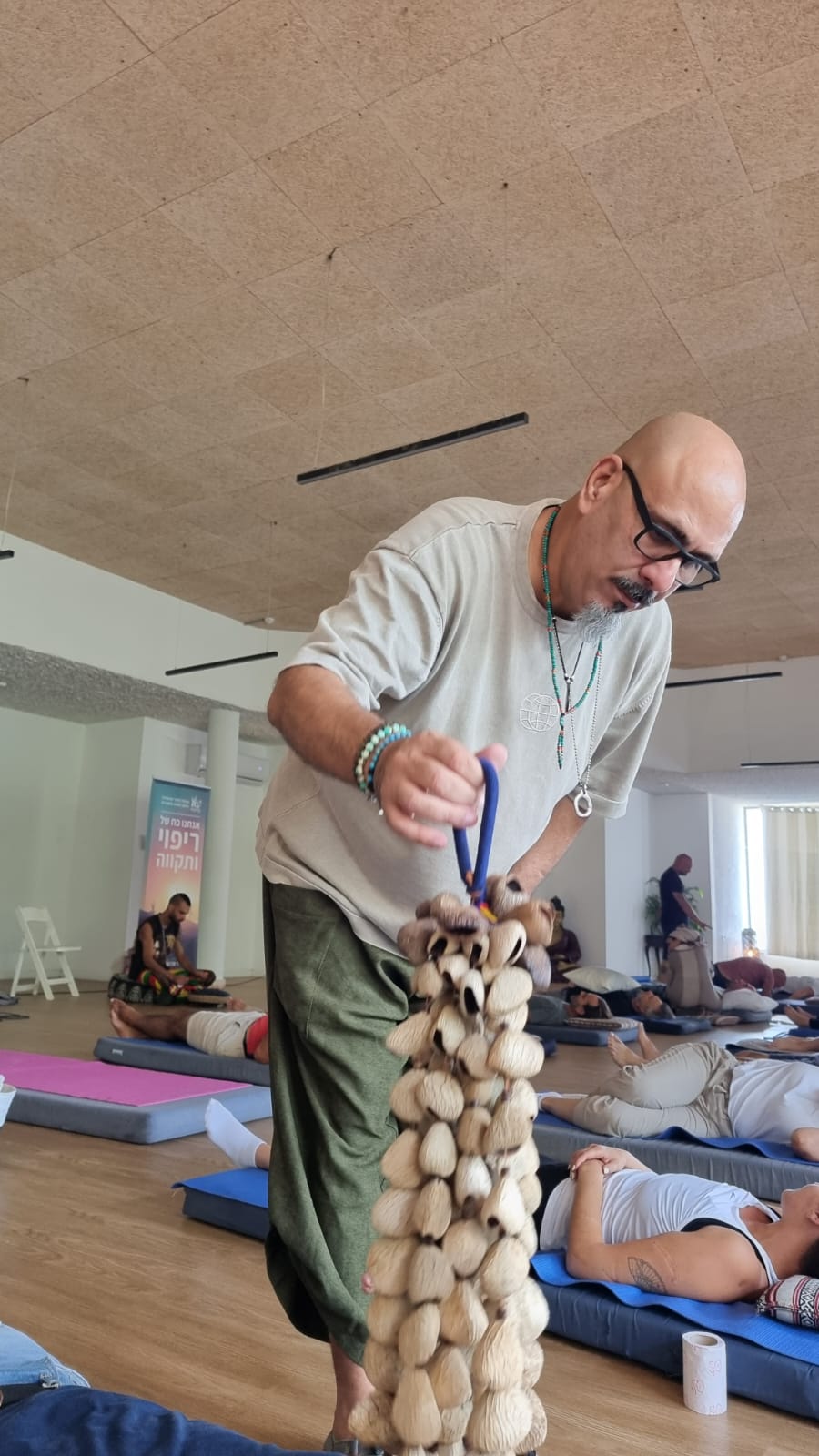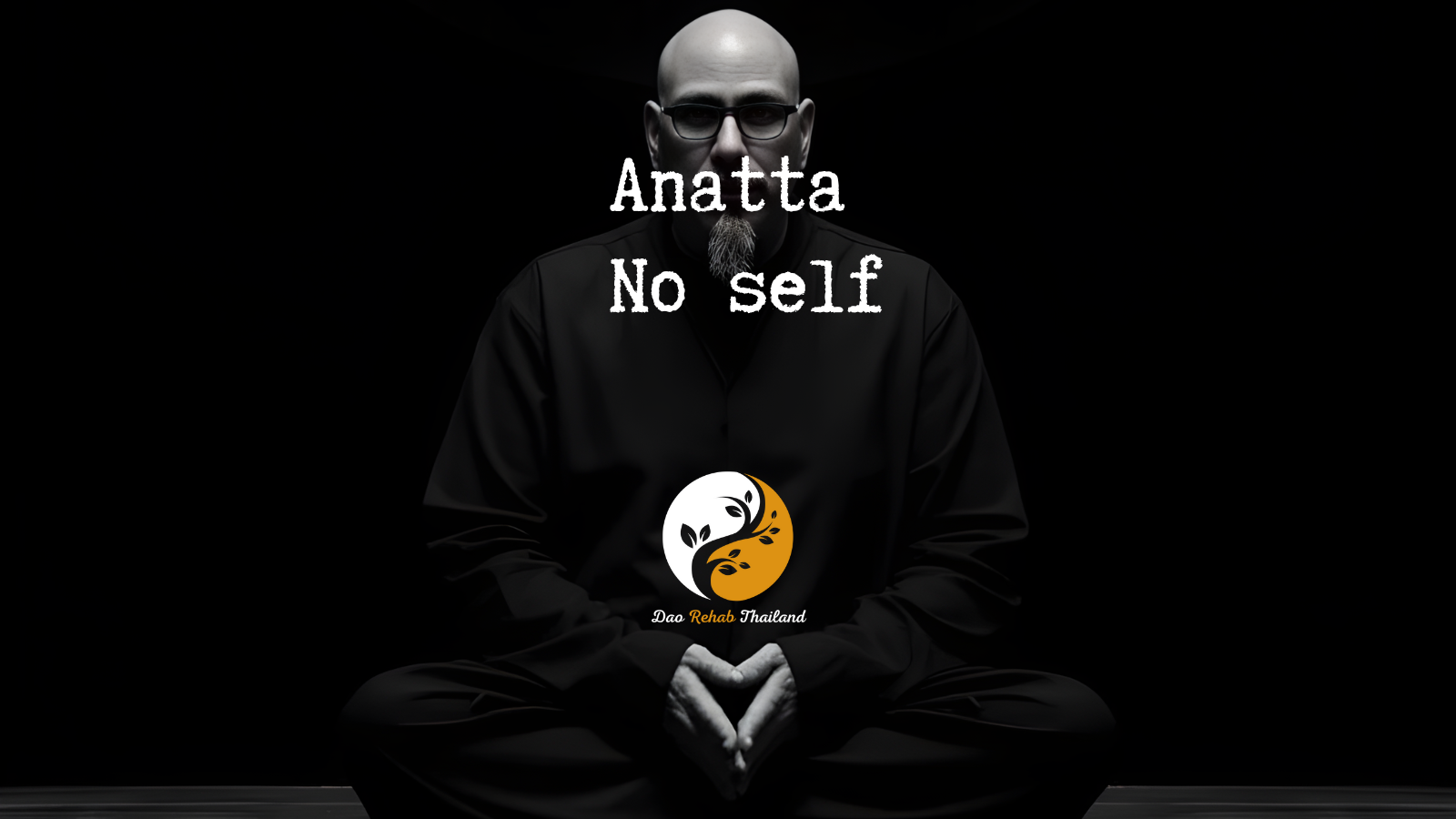
Fundamentals of the Primitive Psyche – Carl Jung
Fundamentals of the Primitive Psyche Carl Jung
“Turning the impossible into possible”

"Detox from Drugs at a Luxury Holistic Center in Thailand and Israel"

Fundamentals of the Primitive Psyche Carl Jung
The human psyche is a wondrous and mysterious creation, composed of a wide variety of elements and layers. As psychologist and thinker Carl Jung describes, the psyche is not a homogeneous entity, but a dynamic fabric of different parts, some conscious and some hidden from view. At any given moment, these psychic elements can awaken and express themselves in a variety of ways, depending on the situation and external stimuli.
For example, an encounter with a certain person may bring out a side of us that we may not have known before, while a challenging situation may reveal hidden inner strengths within us.
"Holistic Center for Trauma, Addiction, and Mental Imbalance Treatment in Thailand"
“Come to the beginning of your journey to freedom from addiction to alcohol, drugs, and pills, and rediscover your life within the serene embrace of DaoTherapy Rehab in Thailand—where holistic healing meets empowering recovery.”
DaoTherapy Holistic Rehab
Key Elements of Drugs Detox:
Medical Supervision: Drugs detox must be conducted under medical supervision, as the body may experience withdrawal symptoms. These can include nausea, anxiety, muscle aches, and insomnia. A medical team will monitor and manage these symptoms to ensure the patient’s safety and comfort.
Holistic Therapies:
Holistic Therapies: Many detox programs incorporate holistic therapies such as mindfulness, yoga, and meditation to help individuals cope with stress and anxiety during the detox process. These therapies support the mind-body connection and contribute to overall recovery.
Tapering Process
Tapering Process: Drugs detox often involves a gradual tapering of the drug to reduce withdrawal severity. Doctors will slowly decrease the dosage over time to allow the body to adjust to lower levels of the substance.
Psychological Support:
Psychological Support: Like any addiction recovery process, detox from Drugs includes psychological support. This can involve counseling, therapy, or support groups to address the mental and emotional aspects of addiction.
Post-Detox Treatment:
Post-Detox Treatment: After completing detox, continuing treatment is crucial to prevent relapse. This often includes participation in ongoing therapy, group support, and the development of new coping strategies to maintain sobriety.
Paths to renewing the connection with the primordial psychic elements
According to the Jungian view, the soul of every person contains within it ancient elements that have developed and crystallized over many generations in human history. These elements, which Jung calls “primordial elements,” are an inseparable part of our mental structure and continue to exist and influence our lives even in the present. However, what makes each soul unique is not the mere presence of these universal elements, but the way in which they are mixed and realized in each individual. Each person is a special mix of basic mental components, which creates his or her own unique personality.
Jung, like other thinkers such as Freud, notices the feeling of restlessness and inner tension that characterizes many people in the modern era. He links this to the process of man’s distancing and detachment from the ancient elements inherent in his or her soul, out of an aspiration to build an enlightened and progressive society. To establish civilization, we were required to suppress and curb basic impulses and instincts and to transcend individual needs in favor of higher values and goals. But over the generations, the primordial elements have been pushed to the margins and gradually disappeared from consciousness, to the point that today we find it difficult even to recognize their presence within us. Instead of living in harmony with the present, we find ourselves dependent on the promises of the future and expect that the future “golden age” will bring with it the solution to all our ills.
A central result of the historical process described is that contemporary man has largely lost touch with the deepest and most fundamental components of his soul. As Jung puts it, we do not know to what extent our ancient components find a response and fulfillment in the reality of our contemporary life, or whether they are repressed and neglected by it. A person’s inner peace, according to this approach, depends first and foremost on the ability to bridge the basic demands and needs of the soul with the dynamic and changing world of the present. Without such a connection, we will continue to experience constant frustration and dissatisfaction.
Despite the considerable challenge, Jung believes that modern man is trying, even if unconsciously, to find ways to renew the connection with the primal psychic elements. He identifies this trend in diverse cultural phenomena, such as the growing interest in ethnic music and art styles that emphasize ecstatic thrills and experiences, or the popularity of spiritual journeys and practices that allow practitioners to experience more liberated and ecstatic states of consciousness. The sexual revolution and the tendency to go beyond the restrictive frameworks of the traditional family can also be interpreted as an expression of the need to reconnect with more primal and sensual energies and impulses. Perhaps the key to dealing with the existential distress of contemporary man lies not in relying on abstract future promises, but rather in creating new and sustainable ways to include and express in the present the deep and immediate layers of our being.
According to the Jungian perspective, the understanding that the human soul is a complex system of ancient and primal elements is an essential starting point in the search for meaning and satisfaction in our lives. The task facing each of us is to dare to look within, to recognize the hidden and visible layers that make up our inner world, and to discover creative ways to give them adequate expression within the multidimensional and changing reality of the present. This is a never-ending journey of self-learning, growth and development, which requires openness, patience and compassion from us. Only through this subtle and conscious work can we establish a lasting connection between the modern world and the ancient depths that pulsate within us, and create a more complete and fulfilling existence for ourselves and for human society as a whole.

contact us
Contact us with your questions
We would love to speak with you! Feel free to reach out with any questions.

get in touch
Schedule a free consultation
Schedule a free consultation with our team and let’s make things happen!
The human psyche - a fascinating and complex journey
The human soul is a wondrous and mysterious entity. We experience it at every given moment, but it still remains a mystery to us. As Carl Jung describes, the soul is composed of many elements, some conscious and some hidden deep within us. In every situation in our lives, different elements of the soul can emerge and express themselves in diverse ways – such as different friendships that bring out other sides of us, or challenging life situations that awaken unexpected inner forces in us. The soul is a unique mix of ancient elements that mix and change in each and every one of us. This is a fascinating phenomenon that deserves observation and investigation.
The Composition of the Soul: Ancient Elements Within Us
According to Jung, our souls are composed of ancient mental elements that have developed over many generations in human history. He describes the soul as a heterogeneous body containing different parts and components, similar to a country composed of minorities that influence its conduct. These psychic elements are like different colors that mix together to create a complex image. Some of the elements are more familiar to us, while others lie deep in our subconscious. But all of them, including the most ancient elements, continue to exist in the soul and influence the way we perceive and behave in the world.
Personal uniqueness: a unique mix of psychic elements
What makes each of us unique, according to Jung, is not the mere existence of ancient psychic elements, since these are common to all of us as human beings. Rather, what distinguishes us is the way in which these elements mix and organize themselves in each specific human soul. It is the personal mix that creates the individuality of each person. In addition, even when we “inherit” ancient psychic elements, there is still the possibility of renewal and development. Similar to the evolution of the universe that developed over time from basic elements, the soul can also expand and enrich itself on the basis of the ancient elements found in it.
Modern Civilization: Disconnection from Inner Roots
Jung, like Freud, identifies a sense of restlessness and unrest among people in Western civilization. He links this to the process in which we disconnect from the past and the ancient foundations of our psyche, out of a desire to create a modern, progressive society. In order to build civilization, Jung argues, we were forced to suppress inner passions and desires, and sacrifice personal needs for the sake of higher goals. But over time, these foundations have gradually disappeared from the threshold of our consciousness, and today it is difficult for us to even recognize them in our psyche. Instead of connecting with the present, we live with promises for the future and wait for some “golden age” that will solve all problems.
Loss of connection to psychic foundations: lack of inner peace
Today, Jung argues, we have lost touch with our primal psychic elements. They have been pushed to the margins of consciousness and we do not know to what extent they still influence us. We do not know how our unconscious responds to contemporary reality, and whether the ancient psychic elements are indeed satisfied in modern life. Our inner peace, according to Jung, depends largely on whether the basic and instinctive needs and elements of the soul can find expression and fulfillment even in the dynamic and volatile world of the present. If not, we will experience constant dissatisfaction and restlessness.
The attempt to renew the connection with the ancient soul
Jung identifies many modern attempts to reconnect with the ancient psychic elements. This tendency is expressed, for example, in cultural phenomena such as trance and African music that have broken through to the West, breaking traditional conventions. This is also evident in the growing popularity of psychedelia and activities such as dances and rituals that allow us to enter liberated states of consciousness. More open sexuality is another expression of the desire to “break the mold” and return to more natural instincts and desires, which may have been suppressed in the name of norms and conventions over the generations. Perhaps the way to solve today’s dissatisfaction is to stop living only in the promises of the future, and to start giving expression in the present to the more ancient and basic psychological foundations.
Uncovering the Hidden: Looking Within and Identifying Repressed Needs
To try and reconnect with the deep psychological foundations, Jung suggests looking within and trying to identify which needs and desires in us may be suppressed by society and culture. To look for those manifestations of our primal instincts and impulses, perhaps through everyday activities that arouse in us special emotions or feelings of transcendence and liberation. Even if we are not directly aware of them, perhaps we can find an indirect expression for them that will help restore the lost inner balance and peace. This is perhaps the key to dealing with the challenges of modern life – not to suppress and deny the deep psychological foundations, but to find correct and healthy ways to give them a place and presence in our lives.
Summary: The ongoing journey to the discovery of the soul
In conclusion, Carl Jung offers a fascinating and profound model for understanding the human soul as a complex mix of ancient and ancient elements. Those elements in the soul continue to exist and influence each and every one of us, even if we are not fully aware of them. Jung recognizes the challenge of humans in modern society to feel inner peace and contentment, and links this to the disconnection and suppression of very basic needs and desires of the soul throughout the generations. The solution he offers is not to abandon the achievements of civilization, but to find ways to integrate the ancient psychological elements into it. In this way, perhaps we can regain the connection to the essential components of our mental being, and feel inner harmony and balance. This is an ongoing inner journey for every person – to look within, to reveal the hidden layers of the soul, and to give them appropriate and beneficial expression in their life.
Central insights
1. The human soul is a complex and diverse entity, changing from situation to situation.
2. There are ancient psychic elements in the soul that are inherited from generations.
3. What makes us unique is the personal mix of psychic elements in each of us.
4. In modern civilization, there is a disconnection from the ancient elements in the soul, which creates a feeling of unease.
5. In order to create civilization, we were forced to suppress inner passions and desires.
6. We have lost touch with the primal psychic elements and do not know to what extent they still influence us.
7. Inner peace depends on the ability to give expression to the basic elements of the soul in the modern world.
8. There is a modern tendency to try and reconnect with the ancient psychic elements through creative ways.
9. To connect with the deep psychological foundations, one must look within and identify repressed needs.
10. The key to inner balance is not to repress the ancient foundations, but to find healthy ways to integrate them into life.
practical advice:
1. Look within and try to identify the different psychic elements that make up you.
2. Be aware of changes in your feelings and behavior in different situations, and listen to what they tell you.
3. Give legitimacy to basic needs and feelings that arise in you, even if they seem “unmodern”.
4. Look for creative ways to express the ancient psychic elements in the context of present life.
5. Do not suppress or suppress parts of the soul, but try to integrate and balance them in a healthy way.
6. Remember that the journey to get to know the soul is an ongoing process that requires patience, openness and compassion for yourself.
Psychological Support:
Psychological Support: Like any addiction recovery process, detox from Subutex includes psychological support. This can involve counseling, therapy, or support groups to address the mental and emotional aspects of addiction.
self-talk mantras:
1. Instead of: “I feel lost and disconnected from myself” – “I am in a continuous process of getting to know myself and my soul.”
2. Instead of: “I feel like I am not good enough” – “Within me exist ancient and deep spiritual foundations that deserve appreciation.”
3. Instead of: “I have to be one or the other in order to fit in” – “I am welcome to find my own unique way to express myself.”
4. Instead of: “Modern life does not suit me” – “I can create a balanced combination between ancient needs and contemporary reality.”
5. Instead of: “I try to suppress negative emotions and impulses” – “All parts of my soul deserve listening and space, in a beneficial way.”
Thought provoking questions:
1. Do you recognize certain mental elements that are expressed in different situations in life?
2. Do you sometimes feel a lack of satisfaction or unhappiness in life, and if so, do you think this could stem from the suppression or neglect of basic mental needs?
3. Do you find ways to express and realize in life even the “non-modern” or less socially acceptable mental elements?
4. What could be creative ways for you to reconnect with the deeper and more instinctive elements of the soul?
5. How can a deeper acquaintance with the soul on its various levels benefit your sense of satisfaction and self-fulfillment?








